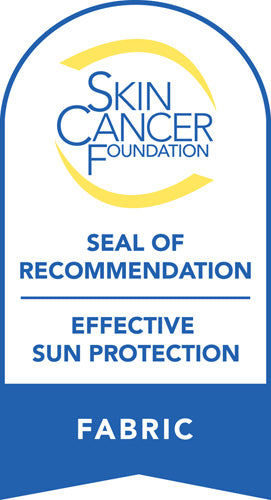Why Tanned Skin Is Not Healthy Skin
Tanned skin is not healthy. Let's examine why skin that is tan is unhealthy and steps to take to keep your skin healthy and beautiful.
Did you know that over 80% of skin aging is caused by sun exposure?
Although it may seem attractive, tanning is unhealthy for the skin and has potentially dire consequences. The truth about tanned skin is that people are unknowingly at increased risk of melanoma or other skin cancer.
Find out what all those pro-tanning arguments don't want you to know! Here's why being tan isn't as good for your health as people make it out to be.
Increased Risk of Melanoma and Other Skin Cancers
Tanning causes an increased risk of melanoma and other skin cancers because exposure to ultraviolet (UV) radiation damages the DNA in skin cells, which can lead to mutations that cause cells to grow and divide uncontrollably. This uncontrolled growth of cells can result in the development of skin cancer.
When skin is exposed to UV radiation from the sun or tanning beds, the body produces more melanin, which gives skin its color and helps protect it from the sun's harmful rays. However, even with increased melanin production, the skin can only handle so much UV radiation before it becomes damaged.
Melanoma is a hazardous form of skin cancer that can spread quickly to other body parts. It can develop on any part of the body, including areas not exposed to the sun. Still, it is more likely to occur in areas that are sunburned or exposed to UV radiation.
Other forms of skin cancer, such as basal cell carcinoma and squamous cell carcinoma, can also be caused by UV radiation exposure.
Sun Exposure Causes Premature Aging
In addition to increasing your risk of skin cancer, tanned skin is also more prone to premature aging. Sun exposure can cause wrinkles, dark spots, and a leathery texture due to the breakdown of collagen in the skin.
The sun's ultraviolet radiation causes damage to the skin's elastin proteins, which keep skin taut and elastic. As elastin proteins break down, wrinkles can develop as the skin loses its ability to bounce back after stretching.
Overall, limiting exposure to UV radiation can reduce your risk of skin cancer. This can be achieved by
- Avoiding tanning beds
- Seeking shade during peak sunlight hours
- Wearing protective clothing and hats
- Regularly applying sunscreen with a high SPF.
Regular skin check-ups with a dermatologist can also help detect potential skin cancer early on. Following these simple steps and avoiding tanned skin can help keep your skin healthy and beautiful.
Tanning Beds Increase Risk of Skin Damage
Contrary to popular belief, tanned skin is not healthy. Tanning beds are particularly dangerous because they emit higher levels of UV radiation than the sun.
Studies have found that people who use tanning beds and booths at least once a year are 74% more likely to develop melanoma than those who don't.
Tanning your skin may seem attractive, but it has potentially dire consequences. Tanning beds are particularly dangerous because they emit even higher levels of damaging ultraviolet radiation than the sun – increasing users' likelihood of developing melanoma.
To keep your skin healthy and beautiful, avoid tanning beds, seek shade during peak sunlight hours, wear protective clothing/hats outdoors & apply sunscreen regularly. Regular check-ups with a dermatologist will help detect potential issues early on.
Sunburns Can Lead to Long-Term Health Issues
Sunburns can lead to long-term health issues by causing damage to the skin and increasing the risk of skin cancer. Here are some ways that sunburns can affect your long-term health:
- Skin aging: Sunburns can cause premature skin aging, leading to wrinkles, age spots, and other signs of aging.
- Skin cancer: Repeated sunburns can increase the risk of developing skin cancer, including melanoma, the most dangerous form of skin cancer.
- Weakened immune system: Sunburns can weaken your immune system, making it harder for your body to fight infections and illnesses.
- Eye damage: Exposure to UV radiation can cause damage to your eyes, leading to cataracts and other vision problems.
- Heat exhaustion: Severe sunburns can also lead to heat exhaustion, a condition characterized by dizziness, fatigue, and dehydration.
Protecting your skin from the sun is vital to reduce the risk of long-term health issues from sunburns. This can include wearing protective clothing, seeking shade during peak sunlight hours, and regularly applying sunscreen with a high SPF.
If you get a sunburn, staying hydrated, cooling down, and avoiding further exposure until your skin has healed is essential. If you experience severe or persistent symptoms, seek medical attention.
Steps to Take To Protect Your Skin from the Sun
Protecting your skin from the sun to keep it healthy and beautiful. Here are some steps you can take to protect your skin:
- Avoid tanned or tanned appearance.
- Wear protective clothing, including hats and sunglasses.
- Seek shade during peak sunlight hours.
- Apply sunscreen with a high SPF for at least 15 minutes before going outside.
- Reapply sunscreen every two hours after swimming or between 10 a.m. and 4 p.m.
By taking these steps, you can help protect your skin from the damaging effects of UV radiation and keep it looking healthy and beautiful for years to come.
Remember, tanned skin is not healthy! Protect your skin from the sun and take steps to keep it looking beautiful. Your skin will thank you in the long run.
Avoid the Risks of Tanned Skin: Protect Your Skin Today
When it comes to tanned skin, the risks outweigh any potential rewards. Even with increased melanin production, UV radiation can cause sun damage and increase your risk of skin cancer. Sun exposure also increases your chances of premature aging at least and heat exhaustion.
Remember, tanned skin is not healthy skin. Protect your skin from the sun and take steps to keep it looking beautiful and healthy. Your skin will thank you in the long run.
At BloqUV, our clothing and accessories are designed with sun protection in mind. Our UPF 50+ fabric blocks 98% of UVA and UVB rays, so you can enjoy the outdoors without worrying about sunburns or tanned skin! Shop our selection now!



